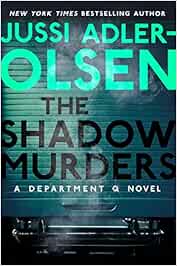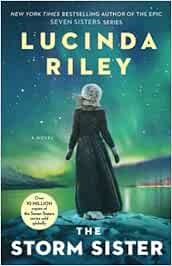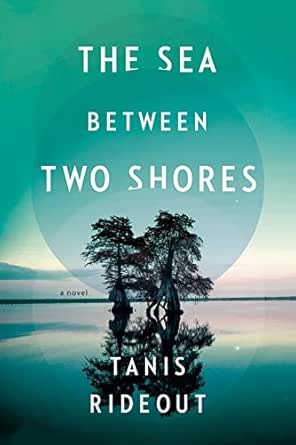3.5 Stars
This book follows We Were the Salt of the Sea which introduced DS Joaquin Moralès. The setting is once again the Gaspé Peninsula of Quebec. Though I was not awed by the first book, I thought I’d give the author another chance and, fortunately, I enjoyed the second book more. It’s a police procedural that also examines family love and loyalty/betrayal.Angel Roberts, the captain of a lobster trawler, disappears after a party to celebrate her tenth wedding anniversary, a celebration she attended wearing her wedding dress. Her boat is found but there is no one on board. Suicide is suspected, but Moralès is not convinced and sets out to conduct a thorough investigation. Assisting Moralès is Érik Lefebvre, a quirky police officer who collects random objects like a magpie and hates fieldwork, and Simone Lord, a fisheries officer who is self-assertive and prickly and has difficulty working as part of a team.
Moralès’ focus on the case is broken by the unexpected arrival of his son Sébastien who seems to have packed his worldly possessions and left his long-time girlfriend. Because Sébastien’s point of view is given periodically, the reader learns that he has come to confront his father whom he blames for teaching his son to be submissive to women.
The pace is rather slow. Moralès is at a disadvantage because he is a newcomer who has come to realize that in the tightly-knit communities of the Gaspé, “you had to know everything about everybody to stand a chance of solving a case.” There are complicated relationships, multi-generational family feuds, and layers of secrets Moralès must untangle to get at the truth. It seems that at each interview, he is told only part of the story. People tend only to answer what is asked so if he doesn’t ask the right question, he will not learn the full story. At times information is withheld out of a sense of loyalty and other times, out of fear.
There are a fair number of suspects so the reader is kept guessing. Several people have motives. What is repeatedly mentioned is the resentment Angel faced because she was a woman in a man’s world: most men resented her choice of occupation, and some had even tried to sabotage her chances of succeeding. I was pleased that, when the mystery was solved, the clues were there in plain sight.
Just as people’s unwillingness to talk frustrates Moralès’ investigation, difficulty in communicating impedes his relationship with Sébastien. They both have much to say to each other, but neither knows how to even begin. As expected, their lack of forthright communication has led to misunderstandings; likewise, Moralès’ reluctance to explain himself does not help create a positive working relationship with the fisheries officer whose expertise he needs.
The author’s descriptions of the coastline and the sea are wonderful: “The gulls diving into the frigid depths, splashing up spouts like shards of ice that pierce the lazy rays of the sun. The swell snorting its way through the morning frost on the sand. The wakes of boats sailing home becoming fewer and further between. The tiny nameless beaches deserted by even the most lingering of holidaymakers. The gloom descending gradually as the day gives minutes away to the night. The silence blanketing the shore.” There is no doubt that Roxanne Bouchard knows the region intimately and loves the sea.
There are some touches of humour that lighten the melancholy mood. Érik’s eccentric behaviour certainly made me smile, as did the behaviour of the cantankerous receptionist at the police station, especially in her treatment of “Detective Moral-less.”
There are some elements that I did not like. Moralès doesn’t call for backup on at least two occasions; this seems like such an amateur mistake. Similarly, Sébastien’s behaviour does not always seem believable; though his emotional state is understandable, he often acts more like a teenager than a man of thirty years of age. Why, for example, would he fail to pass on a message to his father about a man’s disappearance? There is also needless repetition. Does the “beguiling vertebra” at the nape of a woman’s neck need to be mentioned every time she appears? Is a reference to a family’s history of mental illness really necessary to explain one person’s actions? The insertion of a character’s thoughts in the middle of the thoughts of another is disconcerting. For instance, in the middle of Sébastien’s thoughts about Kimo, we are told, “Corine was worried her friend would put a damper on their evening.”








